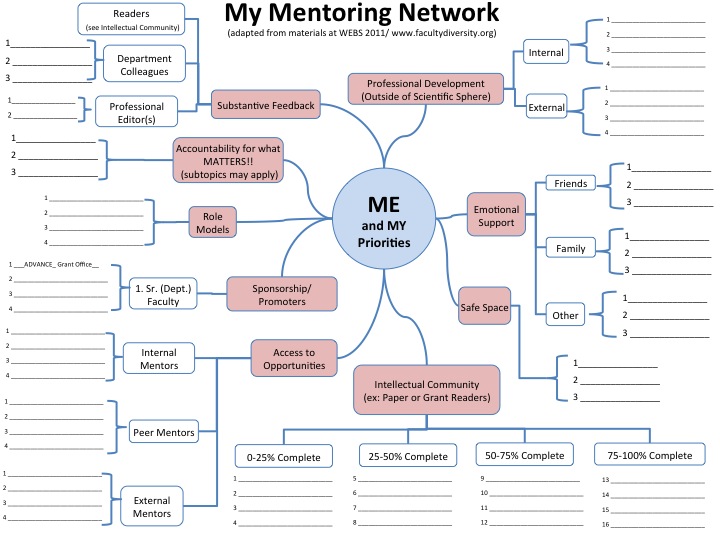Faculty have multiple mentors all across their careers. Some mentoring relationships are formal and assigned, some are informal and develop more naturally; however all mentoring relationships require attention and nurturing to be beneficial. The mentors you have in the early stages of your career may not be the same ones in later career stages. Mentors do not always need to be senior in rank to you. Keep you and your priorities in mind as you cultivate your mentoring relationships.

Print out this Mentor Network Map worksheet to help you conceptualize and organize how your mentors fulfill different professional and personal roles to create a mentor network that helps you achieve your goals. Think about your needs in these areas:
Professional Development
Emotional Support
A Sense of Community
Accountability
Institutional Sponsorship
Access to Networks
Project Specific Feedback
Learning the Institution
There is no one size fits all approach; edit mentoring domains (for example, you may wish to specify who your mentors are for: tenure or promotion, communication, teaching graduate students, managing a research lab) as they make sense for you.

